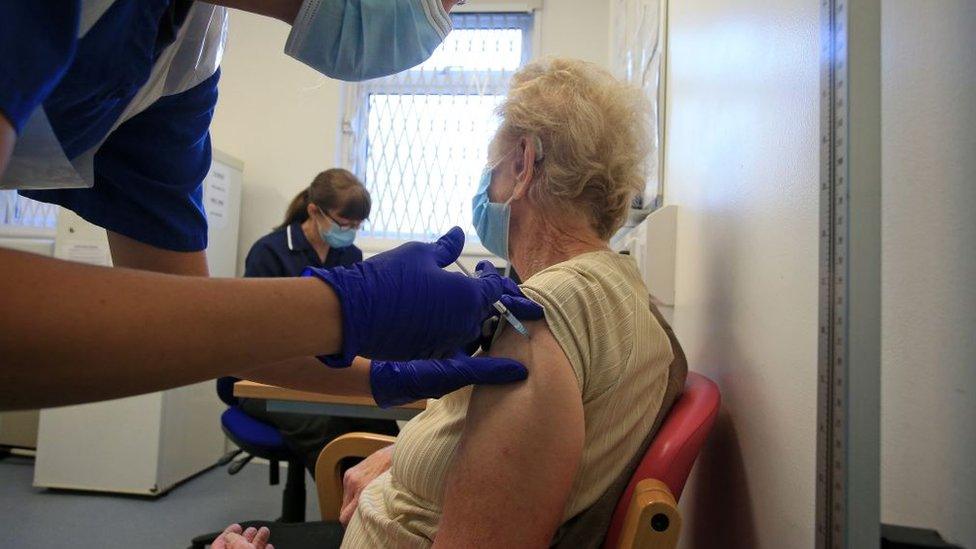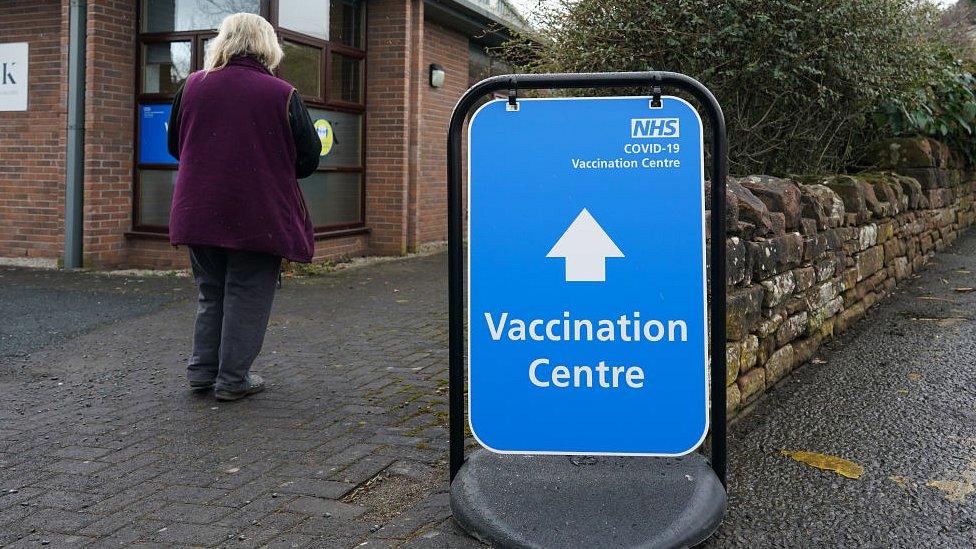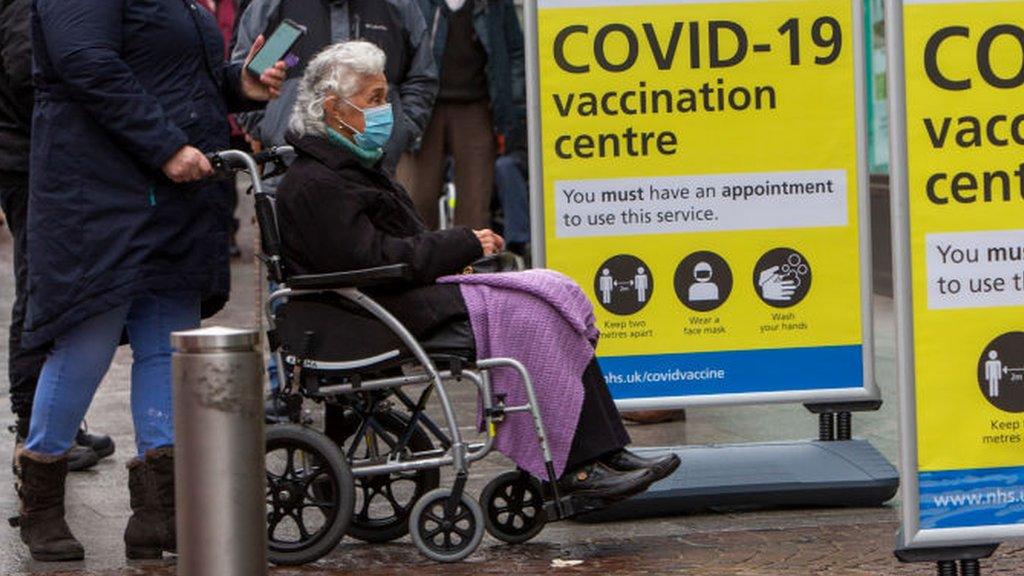Covid: 'Encouraging' antibody boost after Pfizer and AZ vaccines
- Published
- comments

After one dose of either the Pfizer or AstraZeneca vaccines, people over 80 had a similar and "very encouraging" antibody response, a study has found.
With the UK's decision to delay a second dose, the findings are reassuring, the University of Birmingham researchers say.
This is particularly true for older people, whose immune systems are less robust than younger people's.
The vaccines are thought to have saved more than 10,000 lives in the UK., external
More than 32 million people have now received a first dose and more than 7.8 million a second dose, with people in their 40s now being invited for vaccination in most regions of the UK.
The Birmingham study of 165 people aged 80-99 years old is the first to directly compare antibody responses of the two vaccines used in the UK rollout to date.
All participants lived independently and their blood was tested five to six weeks after their first vaccine to gauge how their body's defences had responded.
The researchers found spike-specific antibodies present in 93% of people after the Pfizer vaccine, and 87% of people after the AZ vaccine.
Another part of the body's immune response - found in T cells - was seen in fewer people after both vaccines, but was three times stronger after the AZ jab than the Pfizer one.
Scientists say it's not yet clear what T cell responses mean for protection against Covid in the long term. It's thought they perform a different function to antibodies, and could help to protect against severe infection or against different variants of the virus.
A build-up of antibodies in the blood signals that the body can recognise a specific infection, and is ready to fight it off. They are present after someone has been infected by coronavirus and after having a Covid vaccine.
Other studies have already shown that both vaccines are very effective at preventing serious infections and illness from Covid-19, so this latest research confirms what lies behind that real-world data.
Dr Helen Parry, clinical lecturer at the University of Birmingham, and first author on the study, said understanding the underlying immune responses generated by the vaccines was crucial - particularly in older people and with a 12-week gap between first and second doses.
"We now need to carry out further research to understand what this difference in T cell responses means, and how we might work to optimise future vaccination strategies."
Prof Paul Moss, study author and principal investigator of the UK Coronavirus Immunology Consortium (UK-CIC) and professor of haematology at the University of Birmingham, said the findings were good news.
"As far as we know, this study is the first of its kind to compare both antibody and T cell responses following a single dose of either the Pfizer or AstraZeneca vaccine in any age group.
"The findings are reassuring because many countries, including the UK, have chosen to delay administering second doses."
Their study also found a huge antibody response in people who had already had a coronavirus infection when vaccinated - 600 times higher than other people.
Prof Eleanor Riley, professor of immunology and infectious disease at the University of Edinburgh, said: "Assuming that a similar effect is seen after two vaccinations (as expected from the clinical trial data), this really underscores the importance of having the second vaccination."
She said the wider study's findings could be used to predict how new Covid vaccines would perform "without having to go through the very lengthy process of phase three clinical trials".
The research was supported by the UK-CIC, funded by UK Research and Innovation and National Institute for Health Research (NIHR).
- Published30 March 2021

- Published1 July 2020

- Published1 April 2021
